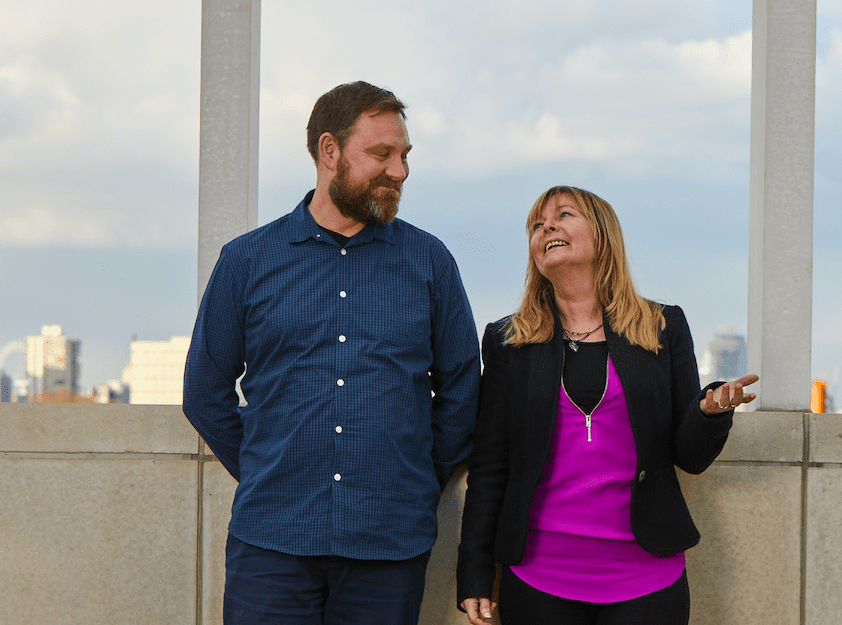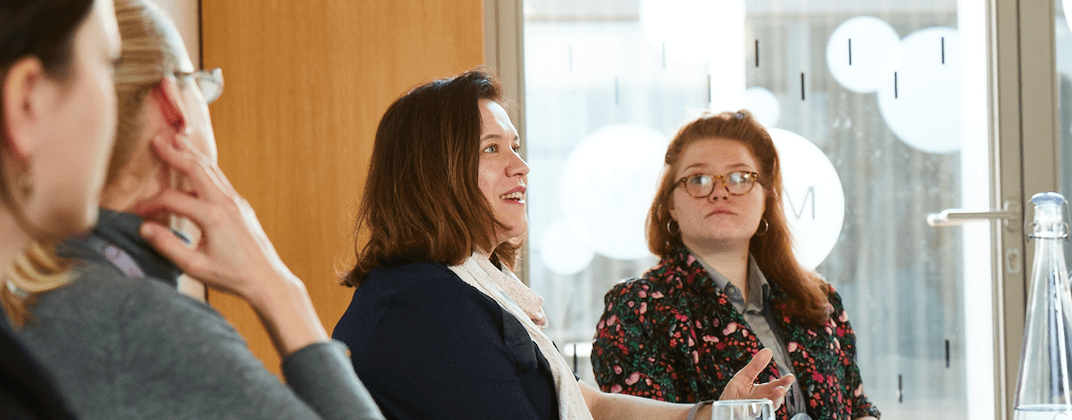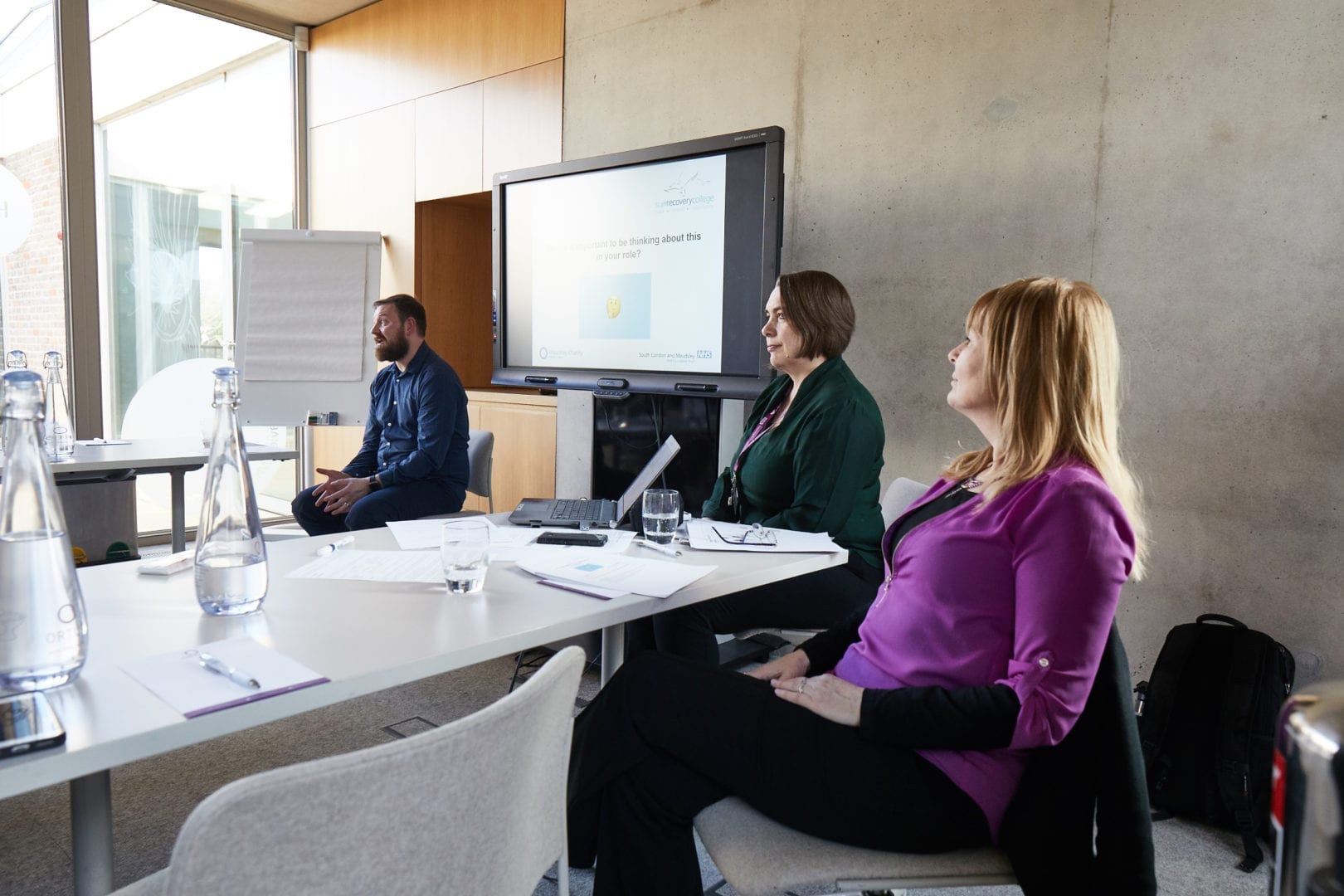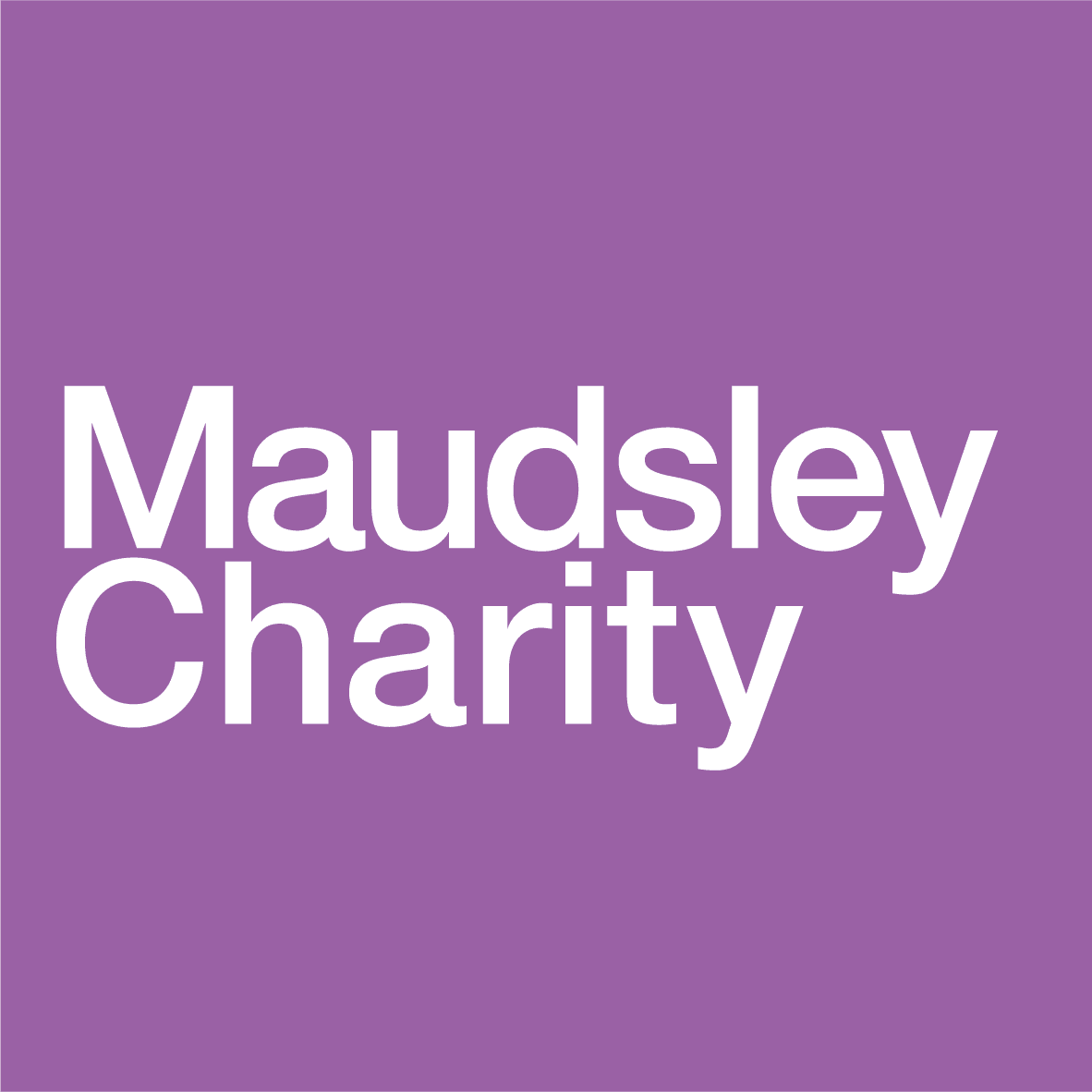The South London and Maudsley NHS Foundation Trust (SLaM) Recovery College is jointly funded by Maudsley Charity and South London and Maudsley.
At SLaM Recovery College, practitioner trainers and peer trainers, who are experts by experience, work together coproduce and co-deliver education for service users, carers, supporters, and South London and Maudsley’s staff to compliment the trust’s clinical services.
Opportunities for people with mental health difficulties
The Recovery College supports everyone to be an expert in their own well-being. Recovery is about people with mental health difficulties having the same opportunities in life as everyone else. It is about a personal journey towards a meaningful and satisfying life. It is about hope, control and opportunity. It is about living as well as possible.
A Maudsley Charity grant helped found the Recovery College in 2014 and the charity has contributed £1.3 million to the project. The college offers free courses to people who use mental health services at South London and Maudsley as well as carers and staff.
Service users and staff switch roles
The model means you are taught by a peer recovery trainer, a person who has lived experience of mental illness, alongside somebody who is usually a health professional working for SLaM. They develop and deliver courses together using a fully collaborative model.
The format of the training means that often service users and staff will switch roles helping them to gain insight to a different perspective and feedback is very positive.

Julie belongs to one of the teams that deliver training to students. She says, ‘We’ve got different backgrounds, but we share common goals and have the same direction. Service users feel more relaxed about taking part in training when they know it is being delivered in this way.’
She continues, ‘A mixed learning environment enables staff and service users to get another perspective. It can help people when they hear someone else sharing an experience from a different point of view. In this unique environment, we see everyone as a specialist.’
Mark, another trainer and one of Julie’s colleagues, adds, ‘As a trainer, some of the things people feed back to us are so powerful. You couldn’t read what they tell you in a text book – it’s just incredible that every day I am learning from a job where I am teaching.’

Find out more about the Recovery College in this short film
Help support the Recovery College
2700 people have taken part in a Recovery College course since 2014. Your donation could help the Recovery College reach more people. We work with our projects to ensure that lessons learned are shared across the NHS and beyond, to bring benefit to people across the UK and internationally.
Donate today
